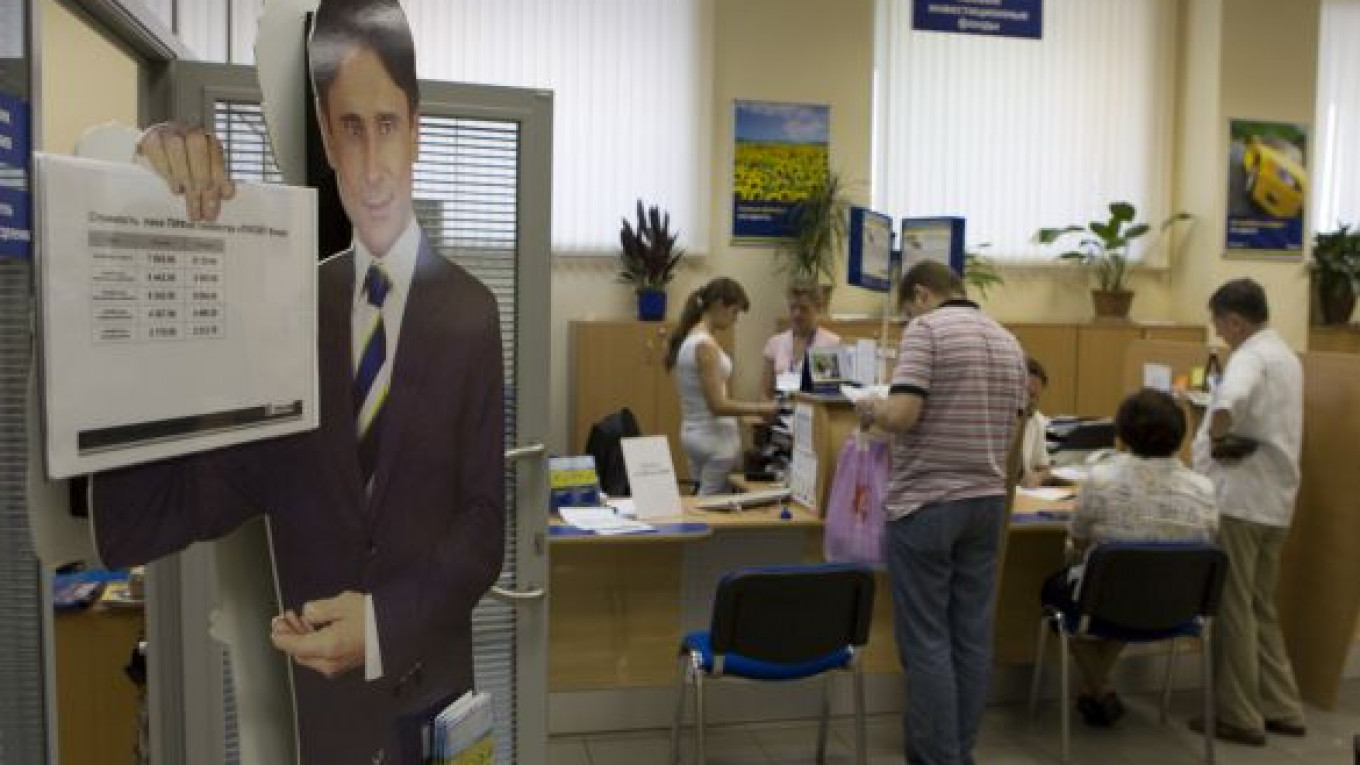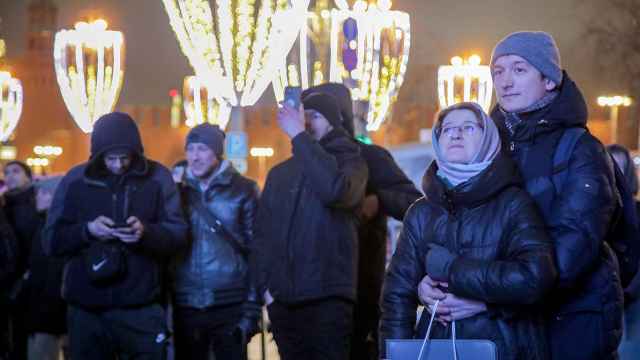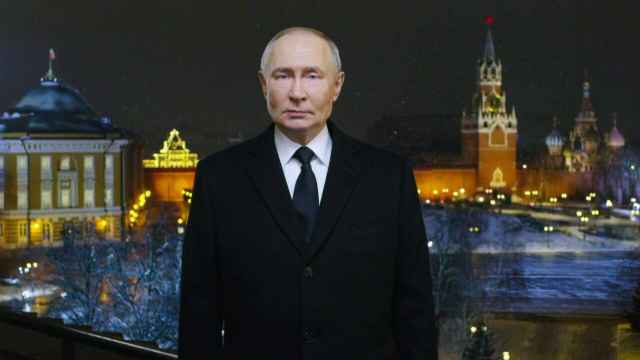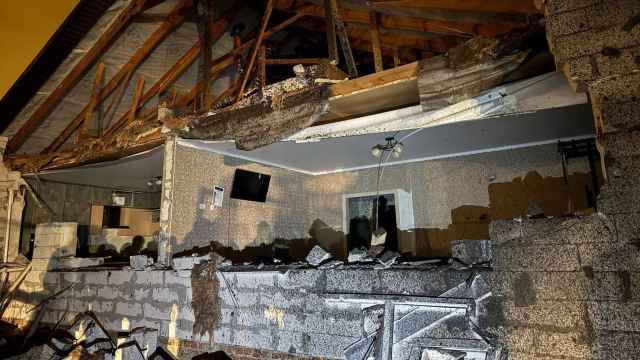LONDON — Russia's commodity-producing regions are planning their first bond sales since 2007 as borrowing costs tumble to record lows amid speculation that the national government will step in should they struggle to repay debt.
Bashkortostan, Russia's biggest oil-refining region, may raise 7 billion rubles ($250 million) this year and in 2012, said Nelli Berdina, head of the debt department in the Bashkir capital Ufa, near the Ural Mountains. Kostroma, a timber and linen producing area on the Volga River, is seeking 4.2 billion rubles, and Krasnoyarsk, a Siberian metals and oil region that sold bonds in 2009, may issue 6 billion rubles.
The debt of Russia's regions has defied a 106 basis point, or 1.06 percentage point, jump in the average yield for local currency bonds across emerging markets, with yields on Krasnoyarsk's 2012 bonds sliding 140 basis points this year as a 27 percent advance in Russian oil prices lured investors. Bonds sold by the Volgograd region yielded one basis point less on June 28 than similar-maturity Russian sovereign notes, which are rated four steps higher by Standard & Poor's at BBB.
"There is very big demand for local government debt," said Yevgeny Vorobyev, senior fixed-income strategist at Otkritie Financial in Moscow. "With such a high probability that the federal government won't allow defaults, it's a gem."
A surge in bonds sold by the Volgograd region has reduced yields 37 basis points since their issue in May to 7.41 percent on July 15, 18 basis points more than the yield on ruble-denominated debt due in 2016 sold by the Finance Ministry.
Volgograd's bonds, rated the third-highest non-investment grade of BB- by S&P and Fitch Ratings, yield 66 basis points less than bonds due 2015 of VimpelCom, which is rated a level higher at BB.
"The market views regional credits as having implicit support from the government," said Vladimir Redkin, a Fitch analyst in Moscow. "Our position is that corporate and local government credits with the same rating carry the same risk."
Krasnoyarsk bonds due in 2012 yielded a record low 5.76 percent on July 8, before rising to 5.87 percent on July 15.
Russia's regions have sold 24.7 billion rubles of domestic bonds this year through July 13, half the 49.4 billion rubles issued in the same period last year. The city of Moscow, the wealthiest Russian region that accounted for 65 percent of last year's issuance, stayed out of the market after the ouster of Mayor Yury Luzhkov in September.
Finance Minister Alexei Kudrin told reporters in London on July 8 that federal aid to municipalities, a relic of the credit crisis, will be capped at 20 billion rubles in 2012, from 114 billion rubles this year, according to S&P.
Issuance by the regions will reach at least 100 billion rubles next year as the Finance Ministry cuts back on the loans, which have interest rates of as low as 2 percent, and Moscow starts to sell bonds again, according to Fitch's Redkin.
Kudrin extended budget loans to the regions as tax revenue from corporate earnings plummeted 60 percent in 2009.
Bashkortostan, situated 1,500 kilometers southeast of Moscow, accounts for at least 11 percent of Russia's oil refining led by Bashneft, an Ufa-based oil producer.
The region has the "ability to maintain a very high liquidity position," Moody's Investors Service said in a report last month, when it lifted the outlook on the municipality's Ba1 rating — one level below investment grade and three steps below the Russian government — to "positive" from "stable."
Bashkortostan may take advantage of the "favorable" situation to issue bonds, the region's debt chief Berdina said July 12. Since the government has "its own resources," the decision to issue will depend on "inflows," she said. Bashkortostan last had debt maturing in November 2010.
Kostroma, which last sold bonds in December 2007, plans to borrow again this year to refinance existing debt and help cover its budget deficit, said Anton Tabakh, a senior analyst at UralSib, which is organizing the sale. The timing will depend on "market conditions," he said. Kostroma is rated four levels below investment grade at B+ by S&P and five steps short of the Russian sovereign's BBB rating.
"The market has proven itself, there were no defaults during the crisis" in 2009 by Russian municipalities, Tabakh said.
Krasnoyarsk may choose not to borrow the entire 6 billion rubles in its plan should revenue remain at current levels, Ruslan Shcherbatyuk, deputy chief of the region's finance ministry, said May 11.
A Message from The Moscow Times:
Dear readers,
We are facing unprecedented challenges. Russia's Prosecutor General's Office has designated The Moscow Times as an "undesirable" organization, criminalizing our work and putting our staff at risk of prosecution. This follows our earlier unjust labeling as a "foreign agent."
These actions are direct attempts to silence independent journalism in Russia. The authorities claim our work "discredits the decisions of the Russian leadership." We see things differently: we strive to provide accurate, unbiased reporting on Russia.
We, the journalists of The Moscow Times, refuse to be silenced. But to continue our work, we need your help.
Your support, no matter how small, makes a world of difference. If you can, please support us monthly starting from just $2. It's quick to set up, and every contribution makes a significant impact.
By supporting The Moscow Times, you're defending open, independent journalism in the face of repression. Thank you for standing with us.
Remind me later.






